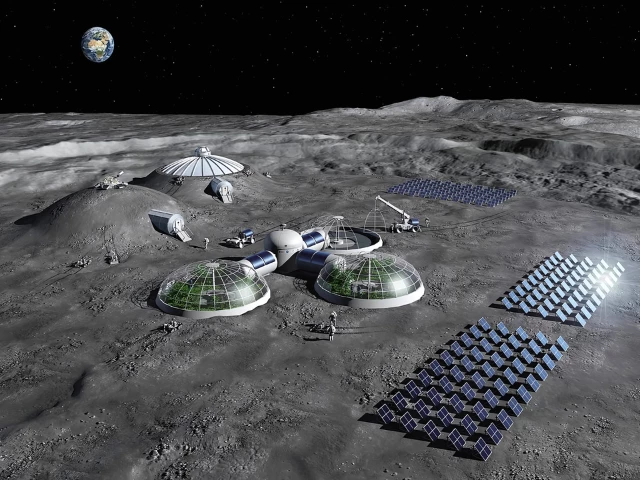South Korea sets ambitious goal to build a moon base by 2045
The plan includes developing lunar landers, rovers, and the ability to extract resources like water ice

South Korea has announced plans to establish a lunar base by 2045, marking a significant leap in the nation's space exploration ambitions.
This goal is part of a comprehensive exploration roadmap revealed by the Korea Aerospace Administration (KASA) on July 17, which outlines several key missions in lunar exploration, space science, and microgravity research.
KASA’s ambitious plan includes developing homegrown technology for lunar landings, rovers, and resource extraction, such as mining water ice from the moon.
The nation is also focused on preparing the necessary infrastructure to support long-term lunar missions, as reported by The Korea Times.
The blueprint aims to see South Korea land a robotic mission on the moon by 2032, with a more advanced lander under development for a potential mission in 2040.
The goal of constructing a permanent economic base on the moon by 2045 is part of the country’s broader vision to enhance its position in global space exploration.
South Korea just laid out its long-term space exploration road map, which features the planned construction of a moon base two decades from now. https://t.co/CQsmNyY7VO
— SPACE.com (@SPACEdotcom) July 20, 2025
South Korea is already laying the groundwork for its lunar aspirations. In August 2022, the country successfully launched its first moon probe, the Korea Pathfinder Lunar Orbiter (Danuri), which reached lunar orbit and continues to study the moon.
In addition, prototype lunar rovers have been tested in an abandoned coal mine, simulating conditions for potential space mining operations.
KASA’s goal is to foster innovation that can eventually lead to a sustainable lunar presence, similar to plans announced by other space-faring nations, according to Space.com.
The United States, through NASA's Artemis programme, is also working on lunar bases, while China has partnered with Russia for a similar endeavour. India, too, has its sights set on building a moon base by 2047.
In addition to its lunar ambitions, South Korea’s space agency is also eyeing Mars, with aspirations of conducting its first Mars landing by 2045.
As nations around the world ramp up their efforts for lunar exploration, South Korea’s goal reflects the increasing global interest in the moon as a hub for scientific and economic opportunities.



















COMMENTS
Comments are moderated and generally will be posted if they are on-topic and not abusive.
For more information, please see our Comments FAQ